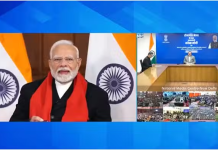NEW DELHI: The Supreme Court today said it would constitute a committee under the chairmanship of its retired judge to look into problems in jails, including overcrowding, and suggest measures to deal with it.
The apex court said the committee for prison reforms would also have two or three officials from the government of India to look into the issues, including that of women prisoners languishing in jails across the country.
A bench comprising Justices M B Lokur, S Abdul Nazeer and Deepak Gupta expressed its displeasure that the government has collected a huge amount under the orders of the apex court but the funds are not being utilised properly.
Agreeing with the court on setting up a committee for jail reforms, Attorney General K K Venugopal told the bench that India was facing enormous problems in several other areas as well.
He said India has a population of around 1.3 billion which is increasing exponentially and there are several problems faced by the country.
“We are trying to solve some of these problems,” the bench told the attorney general.
Justice Lokur also made it clear to Venugopal that the top court was not criticising the government for every problem in the country.
“We are making it clear that we have not and we are not criticising the government for everything,” Justice Lokur said.
The bench has fixed the matter for hearing on August 17.
The apex court had on August 5 expressed its displeasure that several states had not yet appointed the board of visitors who regularly inspect prisons to ensure that they are being run in accordance with rules.
The court is hearing a matter relating to inhuman conditions prevailing in 1,382 prisons across the country.
The court had earlier taken strong exception to overcrowded jails across the country and said prisoners also have human rights and cannot be kept in jail like “animals”.
It had earlier passed a slew of directions over unnatural deaths in jails and on prison reforms across India.
















































